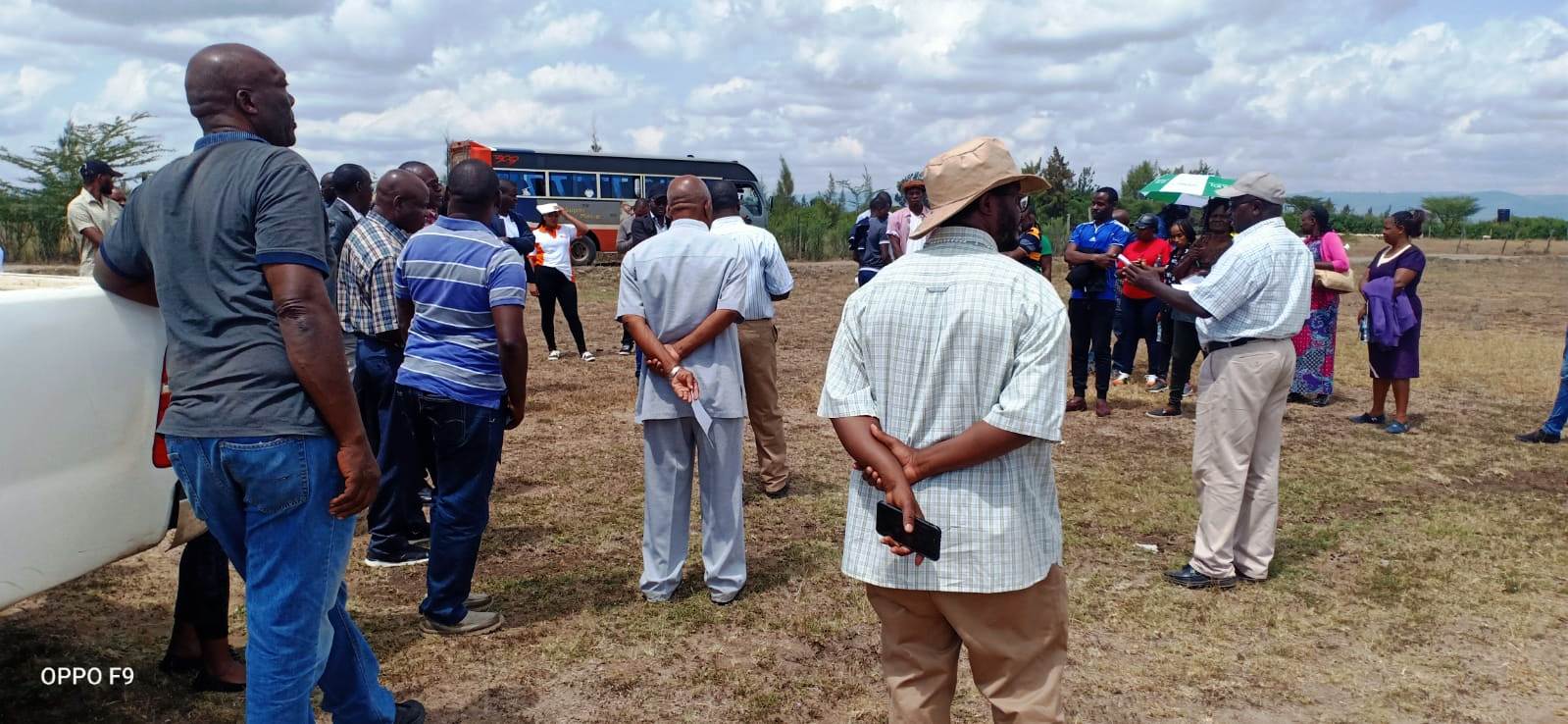By Boy Matumbai
At the onset of the Covid-19 pandemic, Hazina Housing Co-operative Society chairman Charles Musungu agonized with two of his friends who had lost their jobs to the damning ravages of the outbreak. But looking further, he figured out that both his friends owned plots that they were yet to develop.
But even as he empathized with his friends, Mr Musungu was optimistic something could be done. To begin with, it was apparent that trouble with rent and self-sustainability loomed large. It then took him the courage to face his two friends with a word or two in wise counsel.
“Do you have any savings that can afford you some mabati to start you off by fencing your plot?” he posed, to which his friends separately answered in the affirmative. His counsel would instantly resonate well with them, for in a matter of days, they went on to fence their plots and – much later – embarked on construction in their own small way.
Fast forward, the two have settled on their own properties and, in essence, making Mr Musungu proud. With the development, the two men now have chances of feeding their family, for, according to the chairman, they can happily rear chicken as well as grow sukuma wiki on their own plots. The rest, as they say, is history.
In retrospect, Musungu argues that Covid-19 had to take place.
“Covid-19 was prophesied. A prophesy doesn’t fail. It’s real and must take place,” he ponders, adding, “This is just a beginning.”
The chairman asserts that having an own compound is crucial as opposed to living in a rental property that makes us vulnerable to uncertainties in the event of probable loss of income, noting that one has the luxury of growing maize and vegetables, as well as domesticating chicken or goats.
Speaking exclusively to Sacco Review, Musungu takes us through the successive projects that Hazina Housing Co-operative Society has scaled to make home ownership a near-reality to majority of their 1,370 members mostly drawn from the mother Sacco, Hazina.
Through his mobilization, the chairman managed to rope in new members from Ushuru Sacco, thanks to his previous days as a taxman at the Kenya Revenue Authority, KRA.
The society’s 20-acre Kisaju project in Kajiado County is virtually sold out, with only two quarter-acre plots remaining.
In Joska, its new 17-acre project is awaiting official launch, as sale agreement is ongoing with willing members already making deposits.
Hazina Housing’s model is currently restricted to acquisition and sale of land. With this, members have been left wondering how to actualize their dream of owning a home without a developer.
“As it is now, we have restricted ourselves to making land available to members, not housing, leaving them wondering: how do we do it?” Musungu poses.
Revealing his office is in talks with some institutions to finance the development of affordable housing units for members, the chairman laments the non-responsiveness of Kenya Mortgage Refinance Company (KRMC), a government agency, to Hazina Housing Co-operative’s successive appeals.
Some of the financial powerhouses the co-operative is talking to include Fontana, Foltan and France’s Ropco. Some 600 members out of 900 have developed plots.
Joska project is the society’s seventh, coming after Lukenya 1 and 2, Kisaju, and Kangundo 1, 2 and 3 projects.
In Lukenya Phase 1 – consisting of 20 acres – three people, including Hazina Sacco chairman Evans Kibagendi, have already developed and settled in their own homes.
Lukenya Phase 2, a 10-acre project, has attracted Ms Josephine Mwakima, the Hazina Sacco Supervisory Committee Chair, being one of the ten people who have since settled on their premises.
What informs the uniqueness of the Hazina Housing Co-operative projects?
“Ours is all about the welfare of members, not business – at least for now,” reveals Musungu, adding that pricing is key here.
At Kangundo Phase 3, for, instance, quarter-acre plots are going for Shs575,000 compared to Devki – barely a stone throw away – who trade in the same for Shs900,000.
Other than the member-friendly prices, Musungu insists on what he terms ‘proper sizes; being Hazina Housing’s tradition.
To qualify to be a member of Hazina Housing Co-operative Society, one only parts with Shs2,000 in registration fee and a minimum of Shs10,000 being minimum share capital.
Musungu pleads with Hazina Sacco’s 34,000-strong membership to join the housing co-operative society and patronize its affordable product to enable them build their own homes.
“Rentals are expensive in the long run. Take, for instance, 20 years of paying rent. You realize you will have spent far more than what you will do buying a plot and constructing your own home,” he challenges Sacco members; most of whom he says are still paying rent.
The chairman says Hazina Housing is completely independent of Hazina Sacco.
Musungu has been a Hazina Sacco member for more than 20 years and a delegate for 15 years representing KRA. For six years, he chaired the Sacco’s Nairobi branch while also chairing the Board of Hazina Housing Co-operative Society.
Having run the society since 2014, Musungu feels he shall be reviewing his stay at the helm in two years’ time, in line with his personal believe in 10-year timelines.
A Christian counselor who also dabbles in secular counseling, Musungu has a background in teaching. Passionate about the co-operative movement, the chairman says he long predicted that in 50 years, banks will be obsolete.
“The trend, capacity and economic significance of the co-operative sector long pointed at the sector taking over from banks,” he says.
For every project commissioned at Hazina Housing Co-operative, the society retains some plots that are habitable for development of shopping centres, social facilities and other future investments.
The chairman reveals they are looking forward to venturing into construction of property to sell to members and the general public.
The society held its Annual General Meeting (AGM) recently. Like other past meetings, no dividends were declared.



